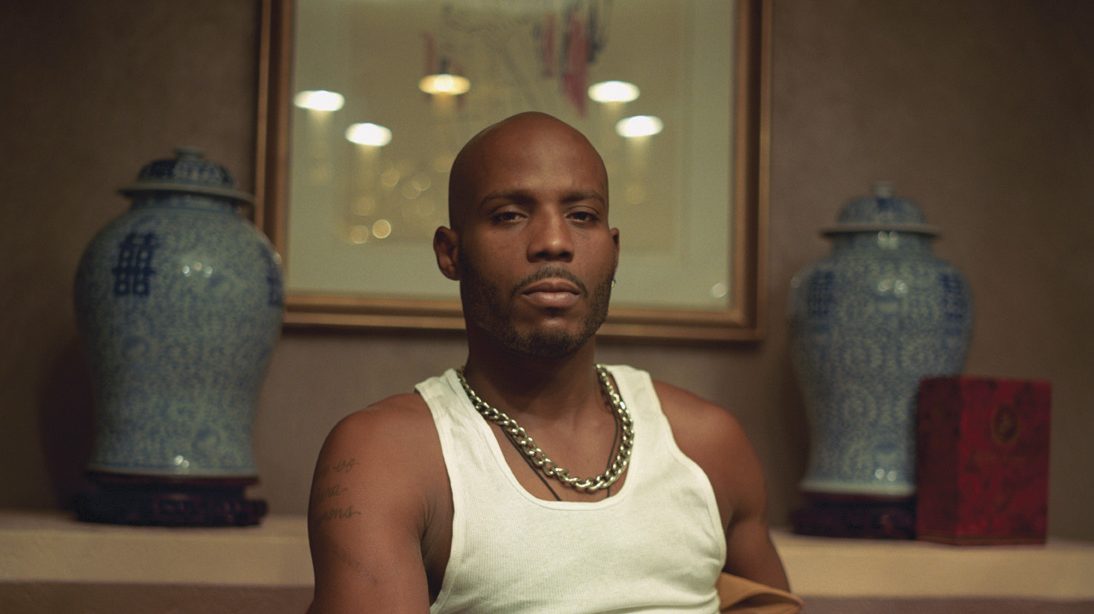At any club that spins hip hop, there’s a particular moment that happens in the middle of the night – and very little has changed about that moment since 1999; everyone instinctively knows that it’s time to turn up when the DJ drops the timeless anthem that is DMX’s Party Up. At first, the revelry is interrupted with the signature summon: a morse code-like sequence of triumphant horns blaring against a steady MPC kick pattern pierced by sharp hi-hats and shrieking gym whistles. This alarming cacophony of sounds primes partygoers for the losing of minds that will momentarily ensue. The cheers drown out, the club braces itself for the drop and then the energetic battle-cry of DMX channeling Ric Flair – “WOOOOOOO!” – gives everyone the green light to absolutely lose it. For the next minute and a half, fans of Tyga and Tupac alike (I pray that they’re mutually exclusive) proceed to bounce in unison and rap at the top of their lungs in a euphoric trance.
Sure, I’m probably romanticizing this moment but it’s hardly a reach; for nearly 15 years (and counting), Earl “DMX” Simmons has miraculously kept the spirit of the late 90’s and early 2000’s alive with each night he throws crowds around the world into hysteric fits. Hell, even the most disinterested of wallflowers in the club can’t help but nod their heads and ad-lib a few times to the Dark Man X’s banger. Whenever this moment takes place, I’m transported to a time when it was okay to be a DMX fan – a time when the drug addiction, the repeat DUI charges, the family drama, the IRS troubles, the absurd Christmas carols and general downward spiral of DMX’s life – the spectacle that it has unfortunately become – disappears. I’m suddenly an 11-year old kid in an oversized hoodie, hoping that DMX’s next album goes platinum. But then the DJ transitions to the flavour of the day – Drake or French Montana – and the dream collapses. The year is now 2014, and it’s not okay to be a DMX fan anymore. The world has moved so far past the conditions that allowed him to be relevant as an artist; misogyny and homophobia are unacceptable; glorified gang violence and drug dealing are being marginalized (although we’re sadly seeing the likes of Chief Keef and Migos ushering a resurgence of these themes). The culture of hip hop itself, for better or for worse, has also changed. The aggression and competition of “battle rap” has given way to cross-camp, cross-genre collaboration and playful boasting. Additionally, every major beef has been squashed. Even 50 Cent and Ja Rule were able to sit in the same row on a plane together without incident. And let’s not get started about the landscape of the music industry, where an artist who doesn’t embrace the internet as a distribution and connection platform, is doomed. And here we have Exhibit: DMX, who doesn’t even know what Google is. Tragic. The man is truly a relic, an anachronism being rendered increasingly obsolete every time Miley Cyrus twerks.
I’ll never forget the moment that I became a fan of the New York rapper. I was in my Grade 7 English class at Dr. Marion Hilliard Senior Public School. We were presenting the results of group project comparing dead and alive musicians. Keisha and Tanasha chose Nat King Cole and Sisqo, quite a remarkable contrast now that I think about it. Natasha popped in a VHS recording of a BET countdown, but didn’t rewind the clip far enough to instantly play the Thong Song music video. When she pressed play, instead, the television assaulted my virgin eyes with the final minute of DMX’s Whats My Name music video. There I sat, in sheer awe of this frenzied and growling man bathed in an ominous red light, draped in the most flamboyant leather track suit, swinging a sledgehammer into speakers while surrounded by scantily-clad gyrating women. It was ridiculous. It was amazing. I had never seen anything like it, and just like that, nothing was the same. Despite being a Linkin Park and Eminem fan, it wasn’t until that moment that I truly lost my hip hop virginity. Once I popped, I couldn’t stop. I sought more. I discovered the Ruff Ryders, and it made me want to join a gang. I bumped Where The Hood At for an entire summer (how such a homophobic song could get such nominal radio play is beyond me). Today, unless you’re 17 and living in South Side Chicago, you can’t cut it as an ignorant and angry rapper-cum-menace. Being a DMX fan means you’re on the losing team. But I’m actually quite okay with that. That’s why I’ve always listened to DMX in the first place. Because he’s perpetually the underdog. Those who get it, get it. Those who don’t, don’t. It’s that simple. In 2014, there are some qualifiers to my love of the music. Now, I have to ignore the violent and misogynistic imagery in most of his lyrics, which I was much more willing to do in X’s prime a decade ago, than now. What remains is the fierce bursts of braggadocio and bravado that became the soundtrack for an 11-year old boy growing up in Scarborough, Ontario. His lyrics, his visuals, the perfect combination of everything that was important to me at that point in my life. Now here I am, 15 years later, blasting DMX in the gym, pre-gaming for parties and psyching myself out for anything that requires a descent into the visceral.
His raw and unrefined stream of consciousness is why fans still gravitate towards DMX’s music. His voice is one of unapologetic, unabashed brashness in an otherwise sanitized, auto-tuned and passive-aggressive hip hop soundscape. The music that you listen to between the ages of 14-24 stays with you for life. It’s a time when we’re still trying to find our own voice, when our personalities are in flux. On the flip side, DMX helped a generation rehearse the scenarios of wanton drug use, reckless sex and senseless violence so that we’d inadvertently have a ballast for our own lives. His later work became much more self-aware of this Jesus complex. Also, his lyrics were refreshingly anti-materialistic, at a time when Puff Daddy and friends were forging “luxury rap,” trading honest rhymes and clever punchlines for brags of Cristal and private-jets. DMX took things back to the ghetto, and kept it there. The growling over Swizz Beatz productions, the passion, the energy, have all surprisingly held up over time. Because it’s easy to kick a dog while he’s down, among downfall headlines we tend to forget that DMX was at one time a bonafide rap-icon and hardly a flash-in-the-pan artist. He started 1998 with Billboard’s #1 album and ended 1998 with Billboard’s #1 album (a feat only matched by Elton John). He was the first artist to have his first 5 albums in a row open at #1, a record still not broken. Over his career, he’s sold more than 30 million records, making him one of the best-selling hip hop artists of all time. And let’s not forget the Grammy nominations and blockbuster movies. At one time, DMX’s popularity was on par with that of Jay Z. But while one wrote the blueprint for success, the other seems to have orchestrated a complete inversion. DMX’s current state of affairs is the product of operating as unsustainable levels. A crash was inevitable. While both men received too much and too soon, for DMX, the losses were as quick as the gains. While Jay Z kept his circle tight and calculated his moves, DMX gave himself to the world and flew by the seat of his pants.
It’s been 11 years since fans of DMX have heard good music from him. The last time was on his 5th album, Grand Champ. Since then, there just hasn’t been the aggressive, emotional and crazy emcee we fell in love with that we see on the news now. Anyone who watched the Behind The Music VH1 episode about DMX can see how much of a struggle X has been through over the past 2 decades. From battling rappers, to battling drugs and jail, the Dark Man struggled for the last decade to get his life on track. But it’s not going to happen. I’m not holding my breath. After his streaking incident, I’ve accepted that you simply can’t teach an old dog new tricks. But I’m comforted by the fact that he’s come to terms with his downfall and will keep things scathingly real till his dying breath. That’s how I remember DMX, and I’m happy that nothing has changed. In fact, some would say that DMX is realizing a self-fulfilling prophecy. In 1999, on the track Life Is What You Make It, he rapped:
Life is too short to get caught up in some dumb shit
Wake up one day, 40 years old on some bumb shit
Time flew by, you was too fly to see the light
Everyday it’s getting darker then comes the night
Now what? (what) realize that you ain’t got shit (uh)
Not long ago you was the man on some hot shit
So just peep the flow yo, cause you already in this
Make sure your shit is right kid and handle your business (uh huh)
The new school seems to be handling their business quite sensibly. If we’re talking strictly about Grammy nominees, then it’s Drake’s time; it’s Kendrick’s time; it’s Mackelmore’s time. Hell, it’s even Kanye’s time. Jay Z’s time is almost up. But DMX’s time? That expired a long time ago. He is now the 40 year-old caricature he referenced in 1999. He’s the one “on some bumb shit.” If Snoop Dogg is hip-hop’s pot-smoking & peace-loving uncle, then DMX is the mercurial junkie uncle that puts everyone at the dinner table on edge. For his ability to keep the state of hip hop in check, DMX is necessary. For many diehard fans, he occupies an almost mythical – even biblical – stature in the game. He’s figuratively the artist dying for the sins of hip hop. For every collaboration with bubblegum artists like Tyga, for every pedestrian Migos hook, for every word that comes out of RiFF RAFF‘s mouth, DMX takes a few more L’s, while remaining staunchly stuck in the past. If he doesn’t like hip hop’s resident sad boy Drake and impostor Rick Ross, he doesn’t hesitate to voice his opinion. His attire, his demeanour, his attitude, everything about him is a throwback to a time when hip hop felt raw and real, not the sonic leaderboard of wealth that it has become. The rap game is cruel, and it’s impossible for DMX to make a comeback now, as he’s getting old in both dog years and rap years. Luckily, we have a body of work that won’t keep us from missing the realness, aggression and craziness too much. For every spin of Coke Boys 4 or Mastermind, I’m going to play It’s Dark And Hell Is Hot and Flesh Of My Flesh, Blood Of My Blood to reset my palate. In many ways, I’m happy that DMX is frozen in time, refusing to change. It’s a necessary reminder of all that’s fake and phony in the game today.




